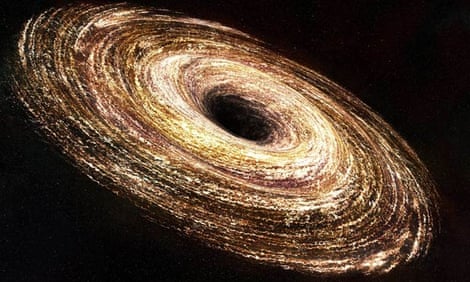
"The great theories of 20th century physics -- relativity, quantum theory, and the Standard Model [of subatomic particles] -- represent the highest achievements of physical science. They have beautiful mathematical expressions that result in precise predictions for experiments, which have been confirmed in many cases to great accuracy. And yet I have just argued that nothing along the lines of these theories can serve as a fundamental theory. This is an audacious claim in the light of their success."
Another quote from the Lee Smolin book. I like the audacity.
In fact, if I understand him at all, Smolin has delivered me from an intellectual cul de sac in which I have been stuck. I've been unable to accept the Big Bang as an absolute cosmic beginning, given the huge something-from-nothing stumbling block. So I have said -- in this blog and elsewhere -- that I believe some patching up of the old Steady State theory will again have its innings. But the advocates of a Quasi Steady State with credentials are so few and far between I felt I was isolating myself from important developments.
The Big Bang theory is not one of the "big three" listed in the Smolin quote above. Still, it is critical to his discussion of them all. And relativity illuminates the idea of a "singularity" at the heart of the Big Bang theory, an infinitesimal point out of which everything may have come.
One venerable way of getting around the something-from-nothing quandary is to imagine the Big Bang as just half of a cyclical picture, matched by a Big Bounce on the other side of things. Then we get a cycle that itself can be considered "steady" over time. Unfortunately, that picture too has long been out of fashion with physicists at Smolin's level.
His own cosmological picture though is this: a black hole is a womb. At the center of every black hole is a singularity, and on the other temporal side of that singularity - another universe. This universe might in fact die the sort of death often imagined for it, of unlimited expansion into nothingness, but the meta-universe into which it was born will go on, and always has.
Nothing comes from nothing, though everything passes through the condition described as a singularity, both entering (as a Black Hole) and exiting again as a Big Bang.
This idea fits into an even broader notion: Cosmological Natural Selection. (CNS) Each universe has its own set of laws. Some very different from those with which we are familiar, others only slightly different, Some universes will expand or collapse too quickly and fail either way. Perhaps, we might imagine, only a few will last long enough to generate black holes and thus other universes. But wait ... can we consistently imagine that?
Consider, only those universes with laws that allow them to last long enough to create new black holes will create new universes. This is CNS -- because it seems to follow that most universes in the meta-universe must have a genetic package, a set of laws and initial conditions, that allows for the creation of black holes.
In contrast to the 'anthropic' theorists, Smolin isn't explaining laws we find on the hypothesis that they were the set that made possible the development of observers such as ourselves. They were and are the set that make possible the generation of more black holes and more universes -- a set of laws that has the side effect of making possible observers such as us.
This notion of CNS is the fundamental view that will in time, Smolin is confident, be seen as providing a founding for the successes of each of the three with which he started, and a correction to the difficulties he sees in each.
I have no real business having an opinion but I like this theory.
Comments
Post a Comment